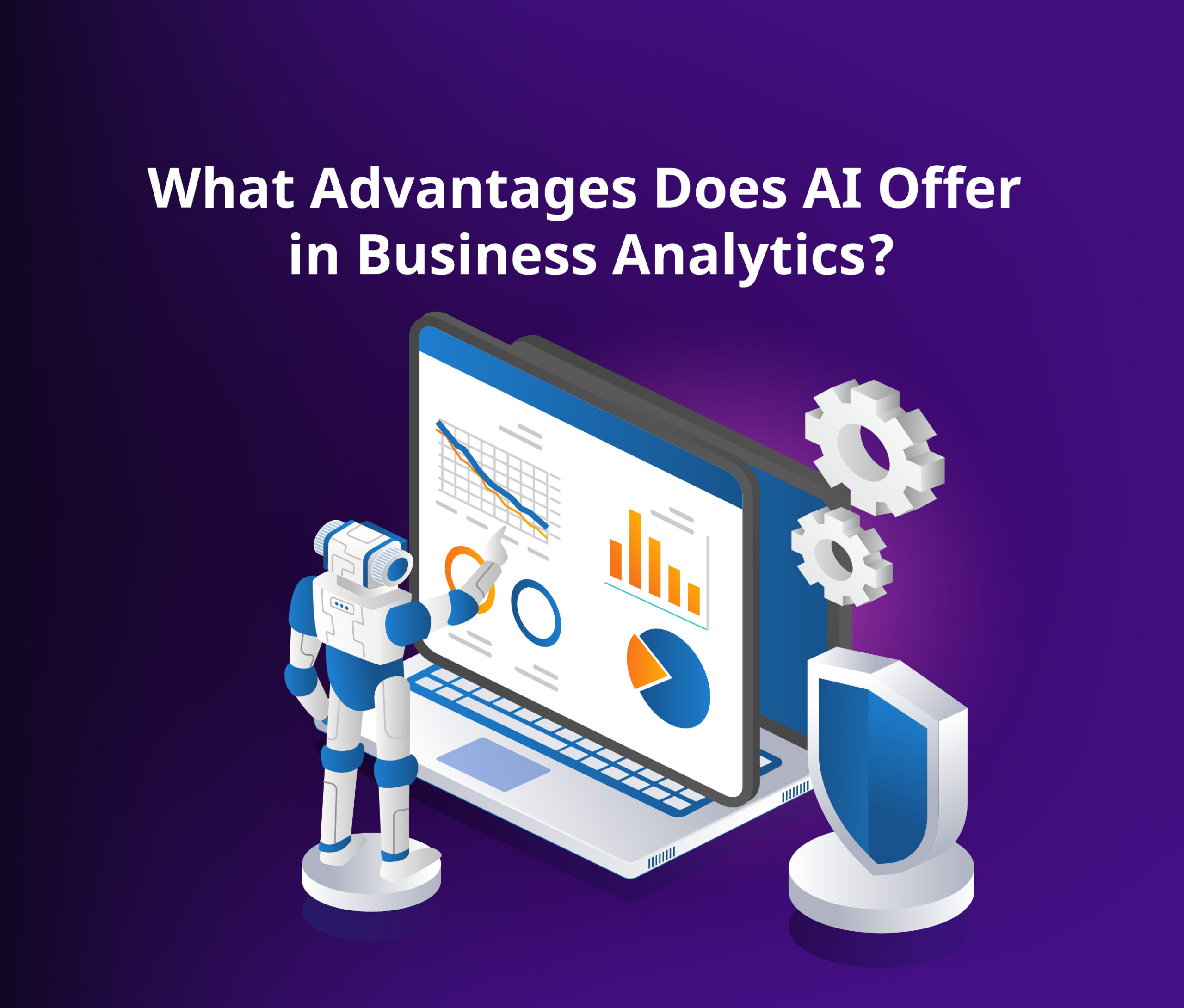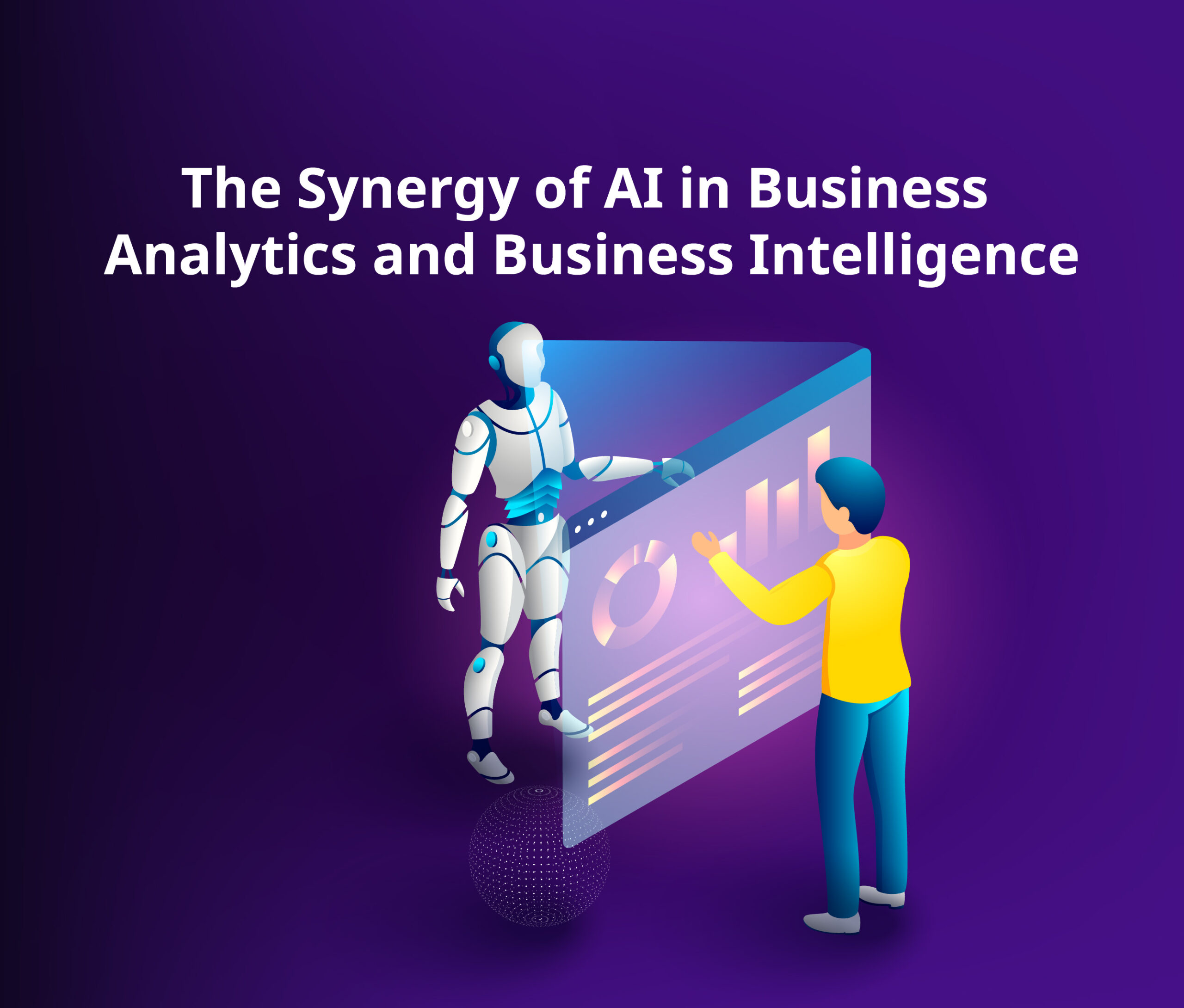Do you believe that businesses make decisions like reducing product pricing, rearranging space, introducing novel products, and venturing into new areas at random?
Not exactly. Most organizations gather and analyze useful information from their data before making any decisions. Business analytics is a crucial idea in this case because it enables organizations to analyze historical data using statistical techniques in order to make well-informed decisions.
The widespread application of artificial intelligence and machine learning in the realm of business intelligence (BI) is empowering enterprises to extract practical insights from vast and intricate datasets. This enables the delivery of business recommendations that are accessible to all users, regardless of their level of expertise.
With that said, let’s delve into this article to gain a deeper understanding of what artificial intelligence entails and why it holds such critical significance for modern business entities.
Why is Integrating AI in Business Analytics Imperative?
Artificial intelligence, or AI, is the process of teaching computer systems human intelligence features such as learning, problem-solving, and decision-making. Machine learning (ML) technology powered by AI has largely been responsible for the application of AI in business analytics. ML can be used to carry out specific tasks like:
- Understand and interpret written content, including user feedback and suggestions.
- Identify and categorize visual images and photographs.
- Identify facial features and objects, facilitating tasks like facial recognition and product recommendations.
Tracing the Need for AI in Business Analytics
Companies now gather a lot more data than ever before. IoT devices, GPS networks, security tools, call logs, and website analytics are just a few of the tools that gather useful data that firms may use to analyze and find crucial information.
The issue lies in the fact that the volume of big data is continually getting bigger, making it increasingly challenging for conventional business analytics software to handle.
Consider the volume of data that corporate behemoths like Amazon are gathering. With so much data available, it is impractical to use conventional business analytics tools to draw insights.
To democratize data and increase adoption, companies prefer using AI in business analytics.
What Advantages Does AI Offer in Business Analytics?

AI confers numerous advantages in the field of business analytics. Here, we highlight some of its pivotal benefits:
-
Cost-effective
– The laborious procedure is automated by AI, freeing humans from manual labor. The technology only generates signals that call for human intervention when there is an actual need, hence lowering the cost of employing human staff.
-
Greater efficiency
– Implementation of AI in business analytics entails more efficient sorting and immediate classification of raw data. Companies can operate more efficiently thanks to this method as it eliminates the need for processes that were previously required.
-
Greater precision
– Technology based on artificial intelligence not only automates some operations but also gets rid of instances of human mistakes. As we previously stated, handling massive amounts of data demands much energy and time, which raises the chances of mistakes. However, using AI to replace this procedure enhances quality and accuracy.
The Synergy of AI in Business Analytics and Business Intelligence

The amount of connected devices and corporate data is growing in the global business sector. IoT-enabled connected devices are expected to grow from 26 billion in 2019 to 75 billion by the year 2025, according to Statista. Over 5 quintillion data bytes are generated daily by connected IoT devices, which is increasing along with the number of IoT devices.
Businesses can no longer rely on traditional business intelligence or business analytics tools to analyze data and obtain important business insights for better decision-making and business strategies because of the burgeoning amount of business data. Walmart, which runs over 11,000 retail locations, uses the ML-enabled HANA platform to quickly handle its large volume of daily transactions. Business intelligence machine learning systems, such as the HANA tool, are anticipated to lower customer infrastructure costs and boost operational effectiveness.
Business management software provider Domo is another example from the sector. Customers of Domo may extract and analyze data from a range of sources, such as Salesforce, Facebook, and Shopify, providing them with insights on customers, sales volumes, and inventory levels. This is done by integrating Domo’s expertise in AI, machine learning, and predictive analytics.
What does this business trend indicate for business analytics going forward? Will the job of a business analyst become automated, just like the manufacturing industry?
The function of the business analyst will change as AI in business analytics becomes more prevalent. Business analysts will need to concentrate more on the essential abilities of data analysis without programming knowledge as AI technology enables real-time data analysis. For instance, the DataRobot tool, which uses machine learning to automate predictive modeling, is usable by users without any training or background in machine learning.
What changes is AI making in the world of business intelligence? The most recent business intelligence statistics for 2019 show that more than 60% of corporate executives think that a well-thought-out AI strategy can increase the number of data-driven business prospects. AI is viewed as a significant competitive advantage by 72% of company executives.
In addition to being used in customer care, business intelligence bots are making it possible to make decisions by reading and analyzing corporate data. Additionally, BI bots may analyze data-related questions posed in natural language without the need for complex querying procedures. According to Gartner, the usage of business intelligence tools in the workplace will increase as a result of BI bots equipped with conversational analytics and natural language processing.
Business enterprises could change as a result of using AI in Business Analytics tools by:
- Effectively handling the expanding volumes of big data sourced from diverse channels by segmenting them into more manageable data chunks.
- Attaining immediate insights from swiftly changing market data, providing valuable support to business managers in their crucial day-to-day decision-making.
- Addressing the industry-wide shortage of proficient data analysts, ultimately curbing recruitment expenses for data-dependent businesses.
Wrapping it Up
Business analytics plays a crucial role in enhancing companies’ market presence, driving profitability, and boosting revenue. It serves as a vital tool in comprehending various operational processes and identifying avenues for overall business performance enhancement. Moreover, AI-powered data analytics seamlessly integrates advanced algorithms to enhance data analytics with AI, optimizing business decision-making processes.
In the current competitive landscape, coupled with the abundance of available data, businesses are compelled to think innovatively and take proactive steps to stay ahead in the market. This underscores that implementing AI in business analytics is no longer merely a desirable feature but an imperative to staying competitive.


